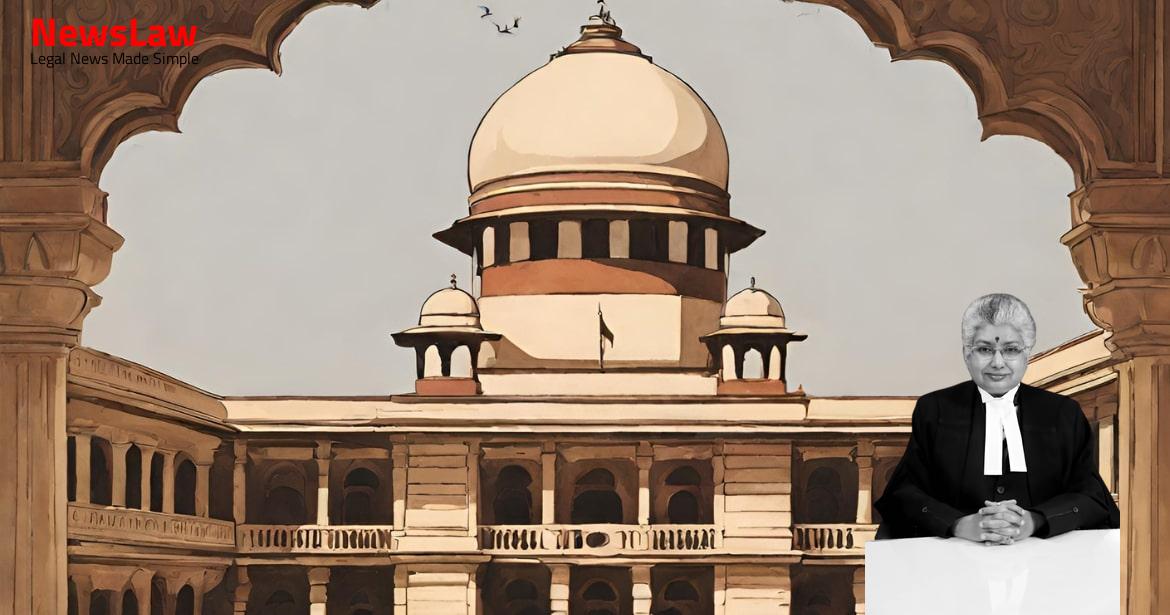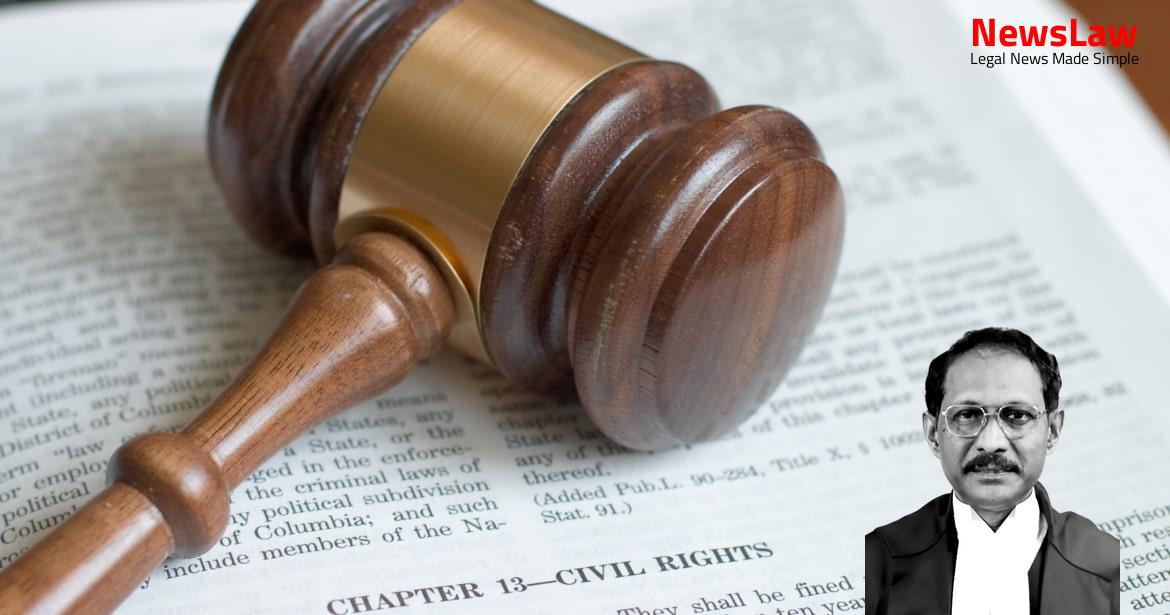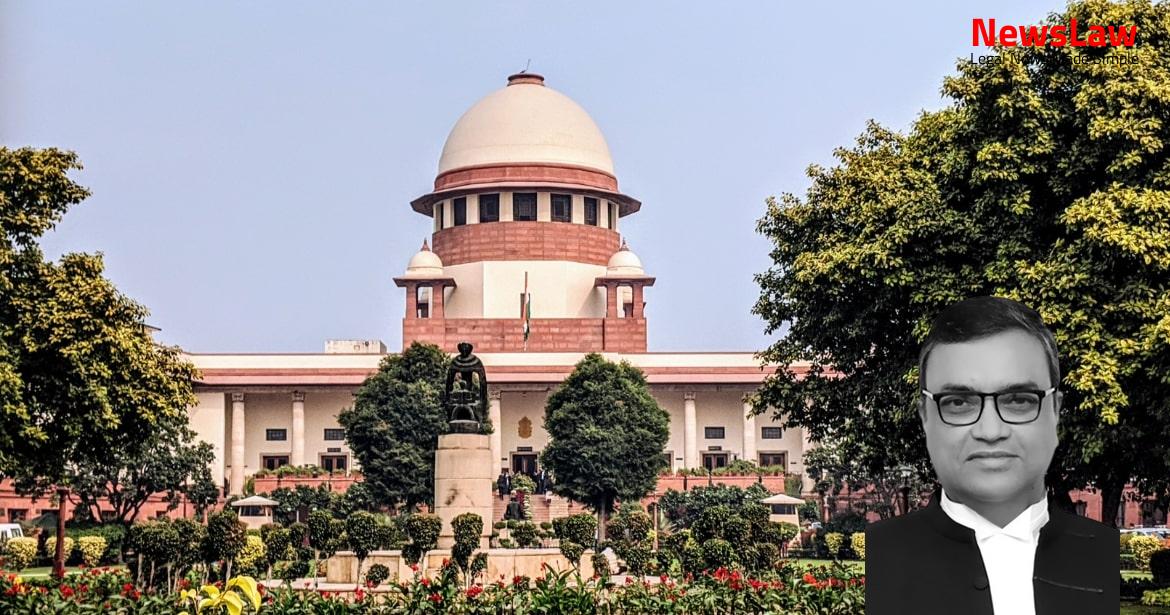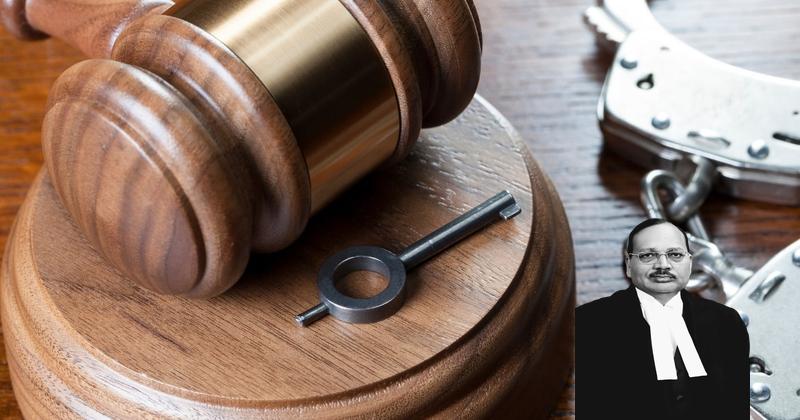The legal case delves into the court’s analysis of interest rate adjustments in arbitral awards, focusing on the discretion of the arbitrator to award interest at various stages of the proceedings. The court carefully considered the impact of delayed actions by the respondent on interest claims, leading to a reduction in the interest rate awarded by the arbitrator. This blog post explores the rationale behind adjusting interest rates in arbitration cases to ensure fair and just outcomes for all parties involved.
Facts
- The respondent filed a notice to the appellant regarding his claim on 25 July 1989.
- The appellants filed an appeal under Section 37 of the 1996 Act before the High Court, which was dismissed.
- The learned Arbitrator awarded a sum of Rs. 9,20,650 on August 24, 2004, for various heads.
- The trial court rejected an application by the respondent for appointment of an arbitrator under the 1996 Act on February 4, 2000.
- The High Court appointed Shri S.K. Mohanty as the Arbitrator on October 15, 2001.
- The respondent filed a claim of Rs. 1,45,28,198 under 15 heads and demanded interest on March 15, 2002.
- The appeal filed by the appellants was dismissed by the High Court in April 2012.
- The respondent filed a suit under the 1940 Act seeking reference of the dispute to arbitration, which was decreed in his favor.
- The Arbitrator awarded interest pendente lite and future interest at 18% per annum.
- The appellants filed a petition before the District Judge, Cuttack under Section 34 of the 1996 Act for setting aside the award.
Also Read: Presumption of Genuine Endorsements in Cheque Case
Arguments
- The petitioner argues that the interest amount awarded is almost five times the main award amount.
- References judgments to support the argument that the interest amount awarded is exorbitant and contrary to the interest of justice.
- Contends that the Arbitrator’s award of interest from 1977 to 1989 is erroneous due to the respondent’s inaction for twelve years.
- Further argues that interest awarded from 1990 to 2000 is unjustified as the respondent failed to comply with directives.
- States that the 18% per annum interest rate is unreasonable.
- Shri Panigrahi argued against interfering with the rate of interest awarded by the Arbitrator, which was upheld by the District Judge and the High Court.
- Section 31 of the 1996 Act allows interest to be determined by the arbitral tribunal as it deems reasonable.
- Referring to the three-Judges Bench decision in Hyder Consulting (UK) Limited v. Governor, State of Orissa Through Chief Engineer, Shri Panigrahi stated that interference is not warranted in the present case.
- Section 31(7)(a) of the 1996 Act grants the arbitral tribunal the discretion to include interest in the sum awarded, at a rate it deems reasonable, from the date of the cause of action to the date of the award.
- The provisions of Section 31(7)(a) were considered in various cases, including Hyder Consulting (UK) Limited and Delhi Airport Metro Express Private Limited v. Delhi Metro Rail Corporation.
- The arbitral tribunal has the discretion to determine the interest on the sum awarded for any period between the cause of action and the date of the award.
Also Read: Medical Negligence and Compensation: A Landmark Decision
Analysis
- The respondent remained silent for a significant period, which disentitles him to interest during that time.
- The arbitrator awarded interest at 18% per annum from the date of the suits to the date of awards.
- Arbitrator’s decision did not consider certain crucial aspects, such as the original agreement not being filed promptly.
- The Court has at times used its jurisdiction under Article 142 to ensure complete justice.
- The respondent’s delayed actions impacted the arbitration proceedings and subsequent interest claims.
- The arbitrator has the discretion to award interest on the whole or any part of the money for various periods.
- The rate of interest awarded by the arbitrator was challenged but upheld by the District Judge and High Court.
- The respondent’s inaction for a prolonged period affected the claim for interest.
- The arbitral tribunal’s discretion in awarding interest must be supported by reasons for the chosen rate.
- An analysis of the period of silence and delayed actions of the respondent in the legal proceedings.
- The power of the arbitrator to award interest for pre-award period, interest pendente lite, and interest post-award period is not in dispute.
- In the case of Mukand Ltd. v. Hindustan Petroleum Corpn. Ltd., the rate of interest awarded by the learned Single Judge subsequent to the decree was reduced by this Court from 11% per annum to 7½ % per annum.
- The Court observed that 7½ % per annum would be the reasonable rate of interest to be paid by the appellant to the respondent for the period subsequent to the decree.
- Various cases were cited where the power of the arbitrator to award interest at different stages (pre-reference, pendente lite, post-award) was upheld and the rates of interest were adjusted based on the circumstances of each case.
- In one case, due to the long lapse of time, the rate of interest was reduced to 6% p.a. in the interest of justice.
- Ultimately, in the present case, the Court directed that the award shall carry interest at the rate of 6% p.a. instead of 18% p.a. to ensure complete justice to the parties.
Also Read: Remand of Writ Petition for Restoration and Decision on Merits
Decision
- The respondent will not be entitled to interest for specific periods.
- Interest at the rate of 9% per annum is awarded for the remaining periods.
- The interest awarded by the arbitrator at 18% is being reduced to 9% considering changes in the interest regime after economic reforms.
- The Court exercises its powers under Article 142 of the Constitution of India to reduce the rate of interest due to delayed proceedings caused by the respondent.
- The principal award remains unchanged, but interest rates for all stages need to be lowered.
Case Title: EXECUTIVE ENGINEER (R AND B) Vs. GOKUL CHANDRA KANUNGO (DEAD) THROUGH ITS LRS. (2022 INSC 1043)
Case Number: C.A. No.-008990-008990 / 2017



